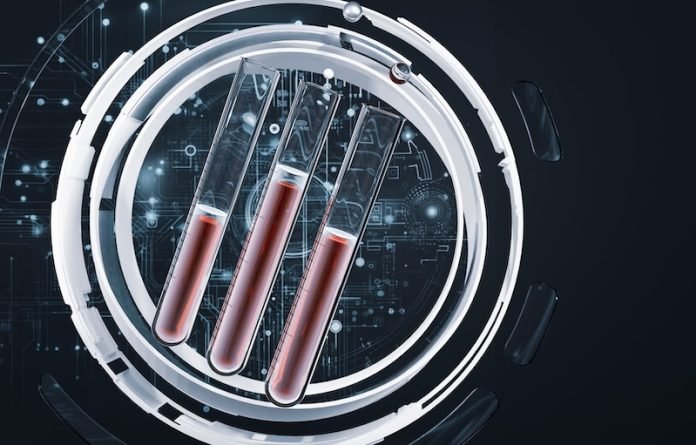
Researchers have developed an innovative blood test capable of detecting a key protein, LINE-1-ORF1p, produced by cancer cells.
Published in the journal Cancer Discovery, this study opens up new avenues for early cancer detection, addressing the challenge of identifying cancers like ovarian and gastroesophageal that often remain undetected until advanced stages.
The test’s uniqueness lies in its ability to detect the presence of LINE-1-ORF1p, a protein produced at high levels in most cancers, using just a small blood sample.
This low-cost, multi-cancer detector is a significant advancement over current cancer tests that are often limited, expensive, or require invasive tissue sampling.
Key Insights from the Study:
Custom Nanobodies: The test employs custom nanobodies derived from llamas, engineered to capture and detect the ORF1p protein. These nanobodies were initially developed for studying molecular interactions in colorectal cancers and were later adapted for this biomarker assay.
Technology and Accuracy: Utilizing a single-molecule-based detection technology called Simoa, developed by coauthor David Walt of Harvard, the test demonstrated high accuracy in detecting ORF1p in various cancer types, including ovarian, gastroesophageal, and colorectal cancers.
Cost-Effective and Rapid: The assay costs less than $3 to produce and provides results quickly, marking a significant improvement over existing cancer detection methods.
Potential for Routine Health Monitoring: The test could be used for regular health monitoring, with ORF1p levels measured during healthy periods to establish a baseline. Spikes in ORF1p levels could indicate a change in health status, prompting further investigation.
Monitoring Cancer Therapy Response: The assay also shows potential in monitoring responses to cancer treatments. Effective treatments should result in a drop in ORF1p levels in the patient’s blood.
Implications for Cancer Detection and Treatment
This research collaboration signifies a major breakthrough in cancer diagnostics. The ability to detect cancer biomarkers early and non-invasively holds promise for improving patient outcomes, particularly for cancers known for their late detection.
The development of this blood test represents a significant stride in the field of oncology, offering a more accessible, efficient, and cost-effective method for early cancer detection and monitoring.
It also highlights the growing potential of nanobody reagents and interactomics in medical diagnostics and treatment.
If you care about cancer, please read studies about a new method to treat cancer effectively, and this low-dose, four-drug combo may block cancer spread.
For more information about cancer prevention, please see recent studies about nutrient in fish that can be a poison for cancer, and results showing this daily vitamin is critical to cancer prevention.
The research findings can be found in the journal Cancer Discovery.
Copyright © 2023 Knowridge Science Report. All rights reserved.



